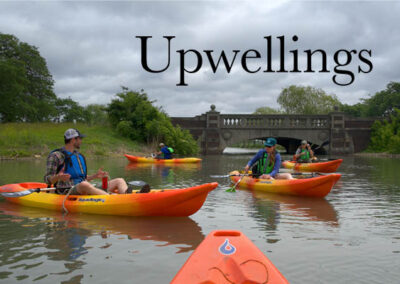Michigan Sea Grant is proud to welcome Thomas Johengen as the program’s new director, effective November 1, 2019.
Tom Johengen is an old friend of the Great Lakes. He has been a research scientist at the Cooperative Institute for Great Lakes Research (CIGLR, formerly CILER) at the University of Michigan for nearly 30 years. He also served as CIGLR director from 2000-2005 and associate director since 2009. He operates out of the NOAA Great Lakes Environmental Research Laboratory in Ann Arbor, where he has worked for nearly three decades alongside both academic and federal scientists.

“I really appreciate the University of Michigan’s School for Environmental and Sustainability giving me this opportunity to help lead one of our critical Great Lakes programs,” says Tom. “I look forward to working with our staff, as well as the program leaders and Extension partners at Michigan State University, to help advance our mission of promoting research, outreach, and education to enhance the sustainable use of Great Lakes resources and to benefit both the environment and our citizens’ quality of life.”
Tom earned his Ph.D. at the University of Michigan, with prior degrees coming from Florida State University and Michigan State University. His research interests include harmful algal blooms, the impact of invasive species on lower food webs, ballast water management and the transfer of invasive species, and observing technologies.
After joining Michigan Sea Grant as director this fall, Tom will continue working part-time at CIGLR to finish his current grant projects, which include: developing models that can forecast the timing and impact of hypoxia in Lake Erie, and improving monitoring approaches to quantify harmful algal blooms and their associated biotoxins.
Catherine Riseng has been serving as Michigan Sea Grant’s interim director since Jim Diana’s retirement in July 2018. She is also the MISG research program manager and an associate research scientist at the University of Michigan School for Environment and Sustainability (SEAS).
“I have appreciated the support of the dean and leadership of SEAS in providing me the opportunity to lead Michigan Sea Grant for a year and a half,” says Catherine. “Tom’s familiarity with the Great Lakes science and outreach community and his strong connection to NOAA make him an excellent choice to lead Michigan Sea Grant. I am looking forward to working with Tom and supporting him as he leads the program into 2020 and beyond.”


